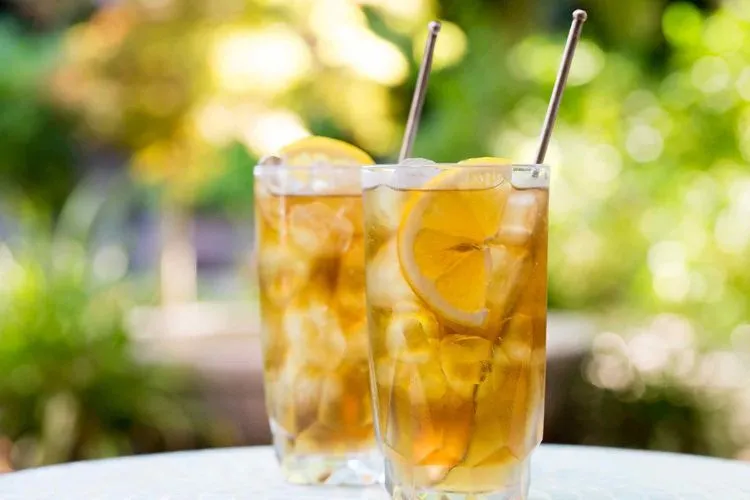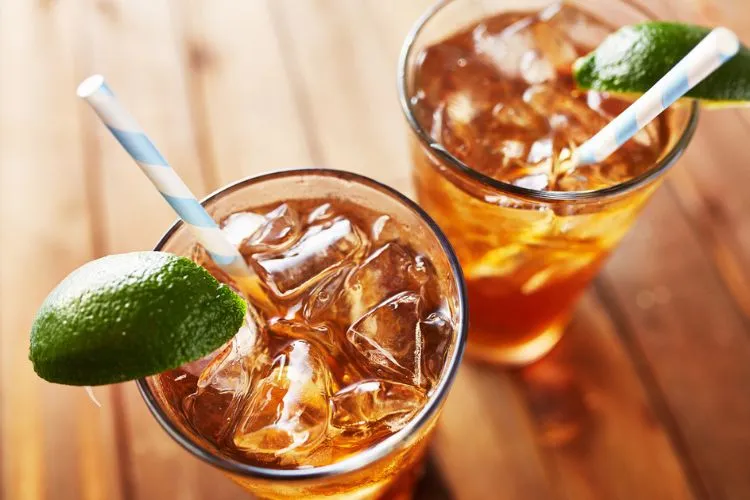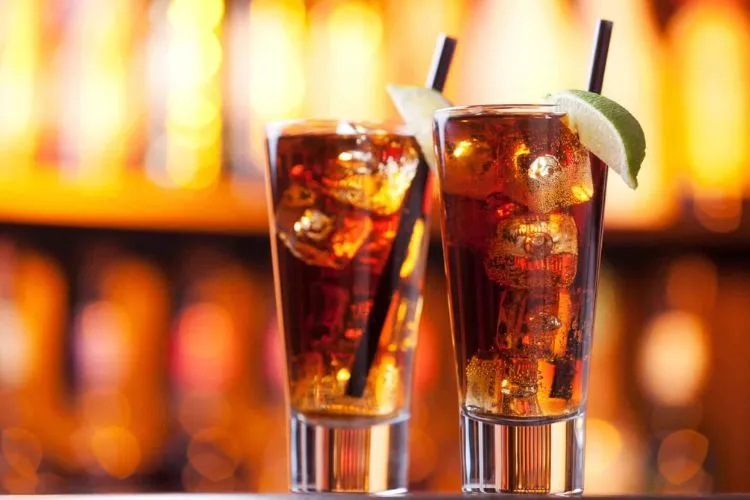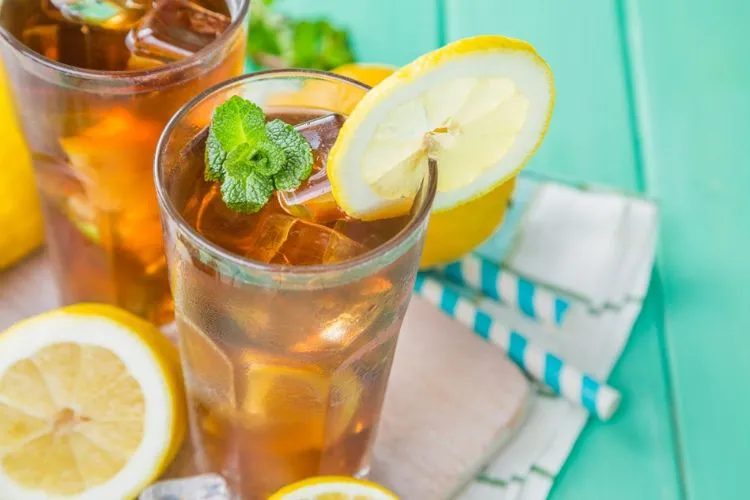In the realm of cocktails, few are as misunderstood as the Long Island Iced Tea. Known for its potent mix and deceptive taste, it’s a drink that’s found itself at the center of a rather peculiar debate: Is long island iced tea a girly drink?
This article delves into the history, ingredients, and cultural perceptions surrounding Long Island Iced Tea to dismantle stereotypes and encourage a more inclusive understanding of cocktail culture.

Is Long island iced tea a girly drink?
The association of certain drinks with specific genders has deep historical and cultural roots. Historically, societal norms have often dictated “appropriate” beverages based on gender, with strong, neat spirits seen as masculine, while sweet, decorative cocktails are labeled feminine.
These stereotypes, however, are not only outdated but also ignore the vast spectrum of individual tastes and preferences.
Cultural influences significantly shape our perceptions of alcoholic beverages. Advertisements, movies, and social media often reinforce these outdated stereotypes, affecting how individuals perceive and choose what to drink.
Labeling drinks as “girly” or “masculine” not only limits personal choice but also perpetuates a culture of judgment and exclusion.
Understanding Long Island Iced Tea
Long Island Iced Tea is a cocktail that belies its name. With no tea in sight, this potent concoction blends vodka, tequila, rum, gin, triple sec, lemon juice, simple syrup, and a splash of cola, resulting in a taste remarkably similar to iced tea.

Originating from the 1970s in the United States, it’s known for its high alcohol content and sweet, deceptive flavor that masks its potency.
The flavor profile of Long Island Iced Tea is a balancing act between sweetness, citrus, and the underlying strength of multiple spirits. Compared to other cocktails, it’s significantly stronger, easily containing the alcohol equivalent of four to five standard drinks.
The Perception of Long Island Iced Tea
Despite its strength, Long Island Iced Tea is sometimes labeled as a “girly” drink, likely due to its sweet flavor and deceptive appearance, which contrasts with the stereotypically masculine ideal of drinking strong, unadorned spirits.
This perception is influenced heavily by media portrayal and societal expectations, which often dictate that men should prefer stronger, less sweet beverages.
However, surveys and expert opinions challenge this notion, suggesting that drink preferences are increasingly becoming gender-neutral, with more emphasis on personal taste rather than societal expectation.
Other cocktails, like the cosmopolitan or margarita, have undergone similar scrutiny, revealing a broader trend of stereotype-driven drink classification.
Personal Preferences vs. Societal Expectations
The heart of the matter lies in personal preference. Every individual’s palate is unique, and the choice of cocktail should depend on personal taste rather than the fear of being judged.
Bartenders and industry experts consistently advocate for customers to choose drinks that they genuinely enjoy, rather than what is deemed socially acceptable for their gender.

Encouraging a culture of respect and openness in drink selection not only enhances the drinking experience but also promotes a more inclusive and welcoming social environment.
It’s essential for bars, restaurants, and social circles to create spaces where individuals feel free to explore different beverages without fear of judgment or ridicule.
Impact of Labeling Drinks on Consumption
The labeling of drinks extends beyond personal preference and can significantly impact consumption patterns. When individuals avoid certain drinks due to fear of judgment, they limit their experiences and perpetuate existing stereotypes.
This behavior reinforces a cycle of exclusion and stereotype reinforcement, detracting from the richness and diversity of cocktail culture.
The psychological effects of drink choice can also influence one’s social identity and confidence. Feeling compelled to choose a drink based on gender conformity rather than genuine preference can lead to a less enjoyable experience and reinforce harmful stereotypes.
The hospitality industry plays a crucial role in breaking down these barriers. By presenting drinks in a neutral manner, emphasizing flavor profiles and ingredients over gendered marketing, bartenders and establishments can help dismantle stereotypes and encourage a more open-minded approach to drinking.
You may also like: Do Guys Like Being Called Baby Boy?
Pro Tips
For those looking to navigate the world of cocktails without succumbing to stereotypes, consider these tips:

- Focus on Flavor: Choose drinks based on what flavors you enjoy, whether it’s sweet, sour, bitter, or spicy. Don’t be afraid to ask bartenders for recommendations based on your taste preferences.
- Explore Different Cocktails: Use the opportunity to explore different types of cocktails, regardless of their perceived gender association. This can be a fun and enlightening experience, broadening your palate and understanding of mixology.
- Handle Peer Pressure Gracefully: If faced with judgment or peer pressure, confidently explain your drink choice based on your preferences. Often, taking a stand can encourage others to reconsider their own preconceptions.
Frequently Asked Questions (FAQs)
What makes a drink considered “girly” or “masculine”?
Traditionally, drinks have been labeled “girly” or “masculine” based on their flavor profiles, ingredients, and presentation. However, these labels are outdated and reflect societal stereotypes rather than inherent qualities of the drinks.
Can the alcohol content of a drink determine its gender association?
No, the alcohol content of a drink does not inherently make it more suitable for one gender over another. This is a stereotype that overlooks individual preferences and tolerances.
How has the perception of Long Island Iced Tea changed over time?
Like many cocktails, the perception of Long Island Iced Tea has evolved, with increasing recognition of its potency and complexity. While some still hold onto old stereotypes, many now view it as a gender-neutral choice.
What are some common misconceptions about different types of cocktails?
Common misconceptions include the idea that sweet drinks are less alcoholic, that certain colors or presentations are indicative of a drink’s “gender,” and that one’s drink choice reflects their personality or strength.
How can individuals challenge drink stereotypes in social settings?
Individuals can challenge stereotypes by confidently selecting drinks based on personal preference, encouraging others to do the same, and engaging in open conversations about the richness and diversity of cocktail culture.
Conclusion :
The debate over whether Long Island Iced Tea is a “girly” drink misses the point entirely. Drinks, like food, are a matter of personal taste and should not be confined by outdated gender norms.
By focusing on individual preferences, challenging stereotypes, and embracing the diversity of cocktail culture, we can all enjoy a richer, more inclusive drinking experience. Let’s raise our glasses, not to labels, but to the joy of discovery and the pleasure of good company.
